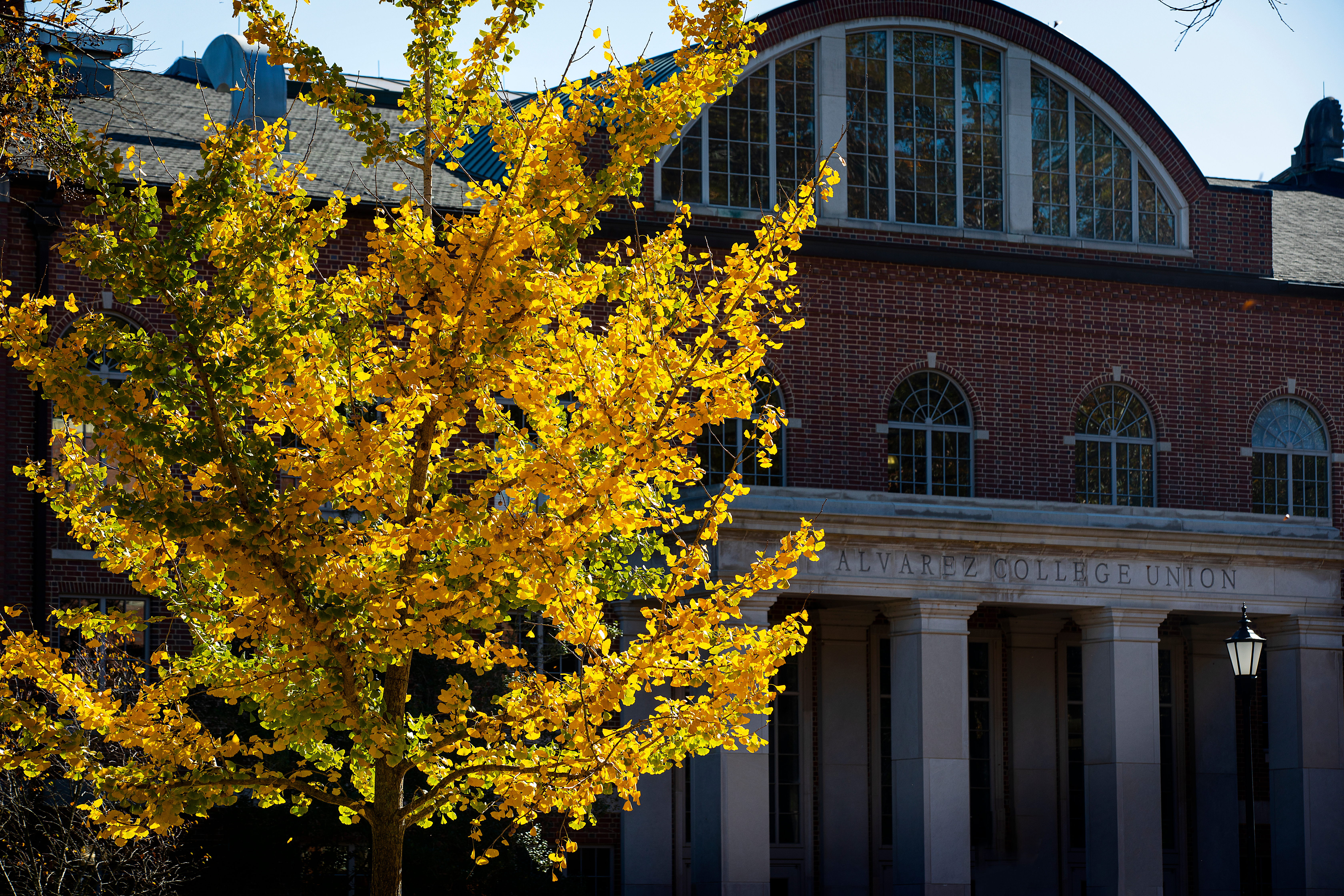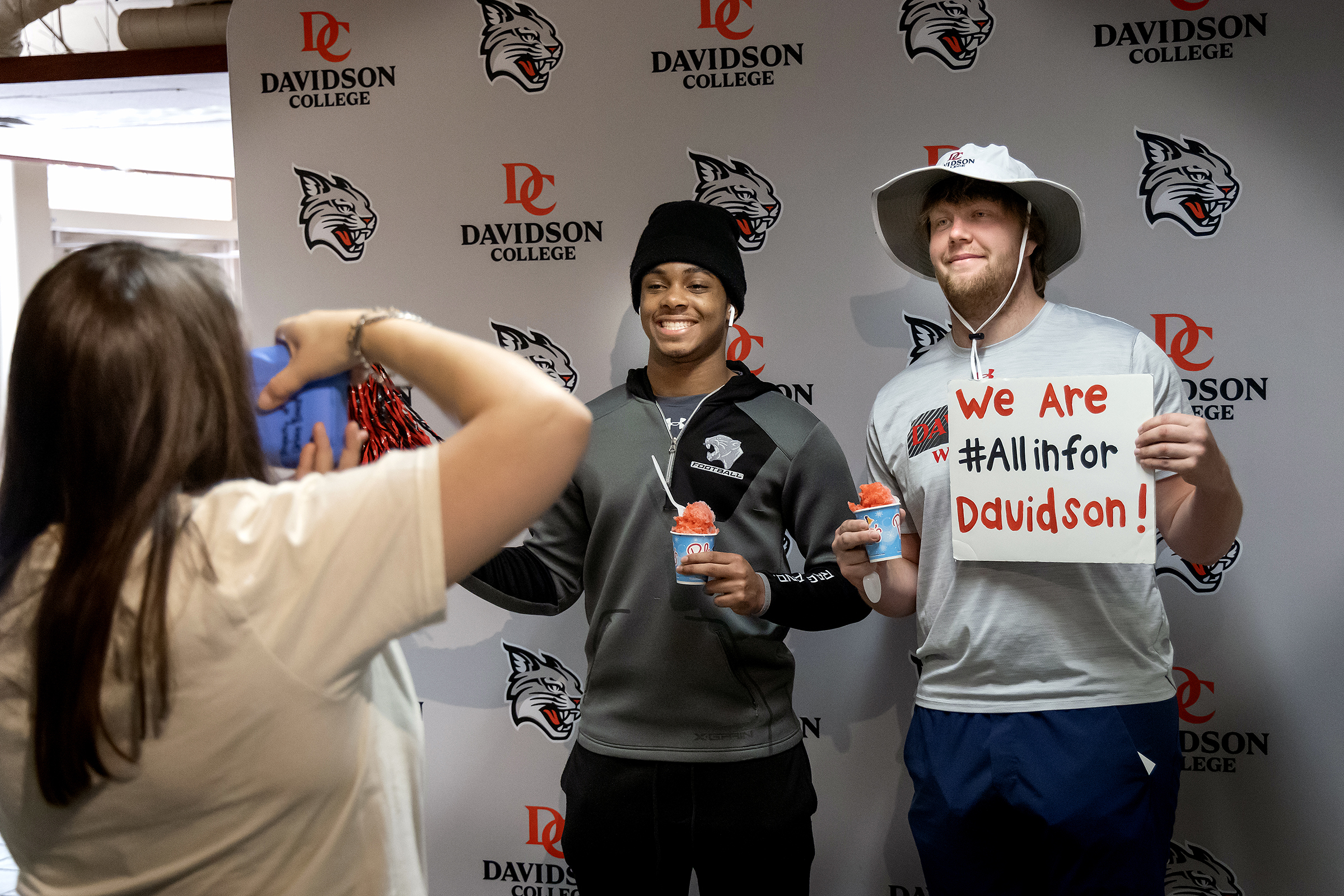Humanity’s Relationship With Nature at Heart of WildSides Work
September 26, 2018
The 35 red wolves left in the wild could soon have their protected stronghold shrunk, from 1.7 million acres across five eastern North Carolina counties to 204,000 acres. Following two public comment periods on the proposed change, the U.S. Fish and Wildlife Service expects to make a decision by the end of 2018. Jeff Mittelstadt '99, who is following the process closely, has helped to inform conversation around the decline of red wolf populations since 2012, when he founded WildSides.org.
When red wolf biologist Chris Lucash was diagnosed with ALS and asked Mittlestadt to help him tell his story, Mittlestadt left his position as Davidson College's inaugural director of sustainability to focus on WildSides. In May, he released his award-winning documentary film about Lucash, titled "Staring Down Fate." The film is, according to the website, "a story about 7.4 billion people and our relationship with nature, told through one person's life."
Mittelstadt's bona fides include stints with the EPA's Office of Inspector General, Bank of America, the National Council for Advanced Manufacturing and as a U.S. Department of Commerce appointee to an expert group on Sustainable Manufacturing and Eco-Innovation. The Davidson psychology major holds master's degrees in environmental management (Duke University), business administration (UNC-Chapel Hill), and mass communication and journalism (UNC-Chapel Hill).
As the U.S. Fish and Wildlife Service weighs the decision about the red wolf habitat, Mittlestadt weighs in on that topic and his WildSides work.
The top of your WildSides website's "Red Wolf Conflict Untangled" page leads in all caps: "This is about you. This is about me. This is about us." But you don't take a side. Why?
We're just trying to bring context. Who are the people who live there [northeastern North Carolina]? What is the proposed rule about? We provide the history of the [U.S. Fish and Wildlife] program, have a description of placeholder theory, look at the issue of hybridization with coyotes.... The idea is to provide more depth. We don't take a side, but we do provide stories and facts.
It is not advocacy, because we're not taking a side. It's journalism, and we're using multimedia creativity to engage people. We want to create something that's engaging that also explains some things, so that anybody can become part of the conversation.
How do you get the job done?
My approach is to film with everybody in their lives around the red wolf issues, around their communities and their homes. To do that, you have to build trust with people who feel that journalists often don't give them their due. When I first went down there, some of the hunters didn't want to talk to me. But they just want people to see that they're people, too. And they live there. After many visits and a lot of listening, they invited me into their lives.
What is the value in staying neutral?
Regardless of what decision is made, we have an opportunity to learn as much as possible about what went right, what went wrong and to gain a deeper understanding for the fundamental disagreements. The people, the issues and the topic of red wolf recovery are similar to many other human-wildlife conflicts. We have a lot of disagreement about endangered species right now, politically. So what happens here can set the tone moving forward, regardless of the side someone takes.
How did your own path lead you here?
I grew up in a northern suburb of Detroit. When I was about six we went to Sanibel Island, straight shot down I-75 from Detroit. As we drove over the bridge to the island, I saw dolphins jumping, and I thought, "I've gotta do it, I've got to learn more." At Davidson, I got into psychology. I was pulled in a different direction at Duke and in the EPA Office of Inspector General, where I worked on air quality issues. I realized I needed to understand business better. Business is always a stakeholder. I learned how people interact, about working with teams, working with people who see things differently, and [later] got to work with some entrepreneurs and in sustainability consulting. I learned how to "fail early, fail often and fail forward." Obviously you want to learn from other people's mistakes first.
How do you stay motivated?
The way I stay with it is that we are so conflict-oriented these days that we need this more than ever. If we don't stick with our mission, then we're just giving in. I don't want to give in to that conflict-first mentality. I also am motivated by students and youth.
WildSides successfully launched our youth storytellers program this past summer. I created it because if we teach our youth to tell other people's stories and learn about other people's perspectives, then they will lead us into a much more empathetic, collaborative and productive future.
Learn more about the Red Wolf conflict and WildSides.org.
John Syme
josyme@davidson.edu
704-894-2523



